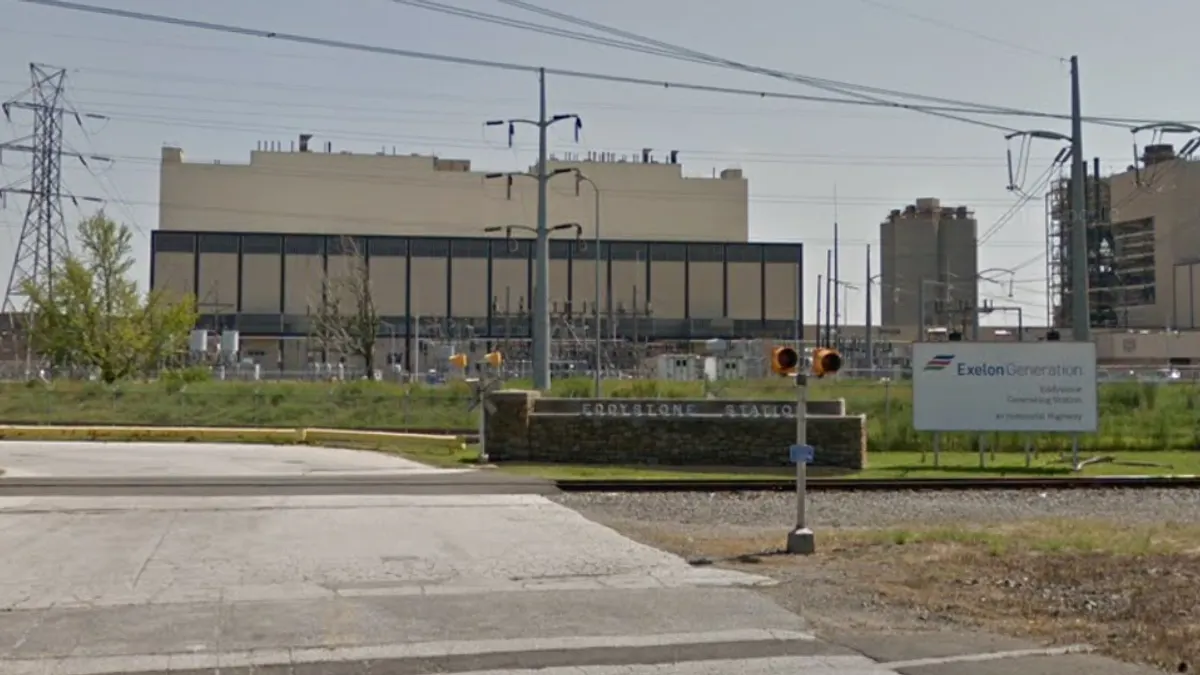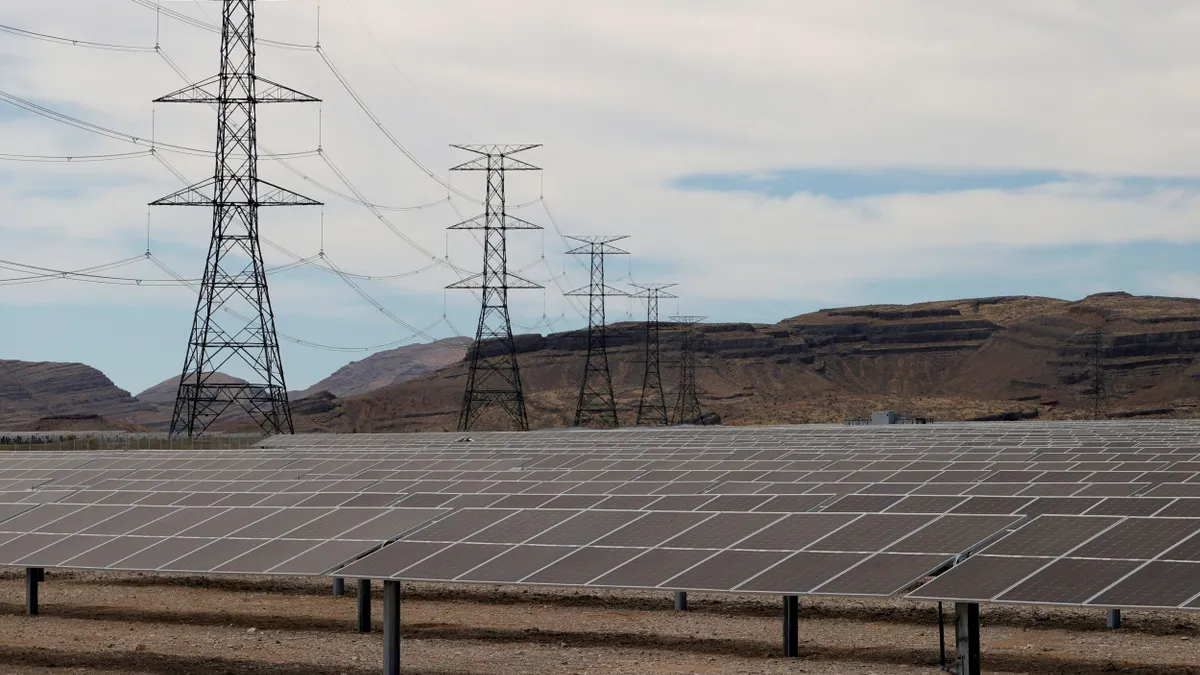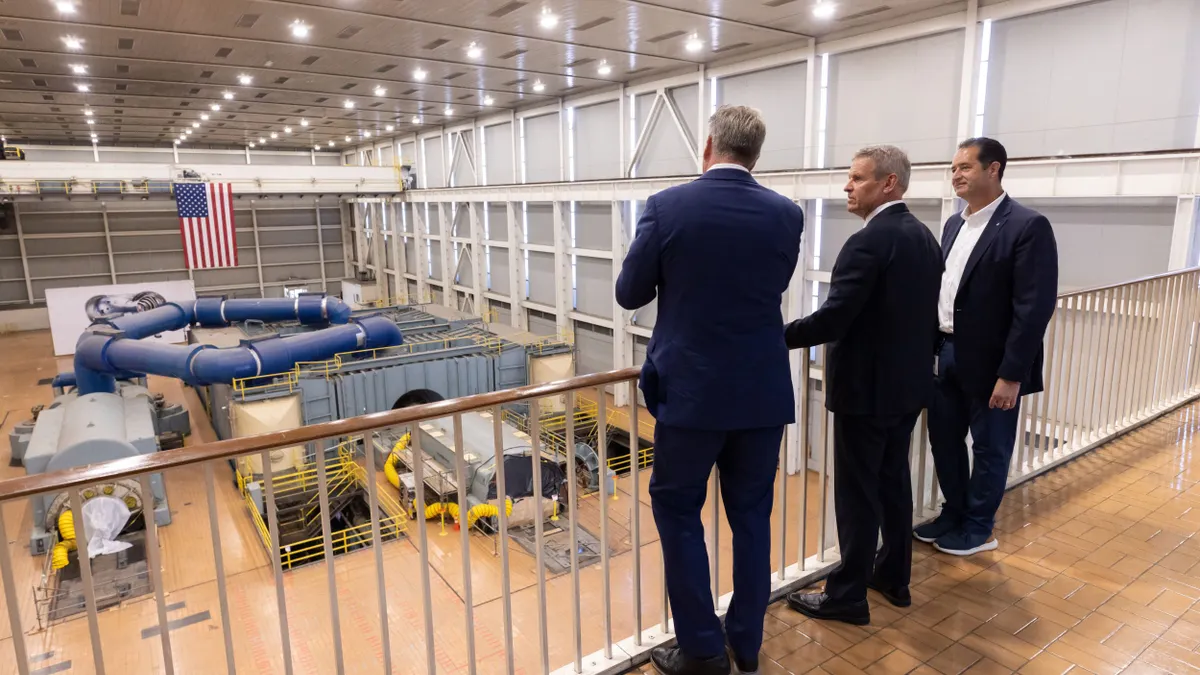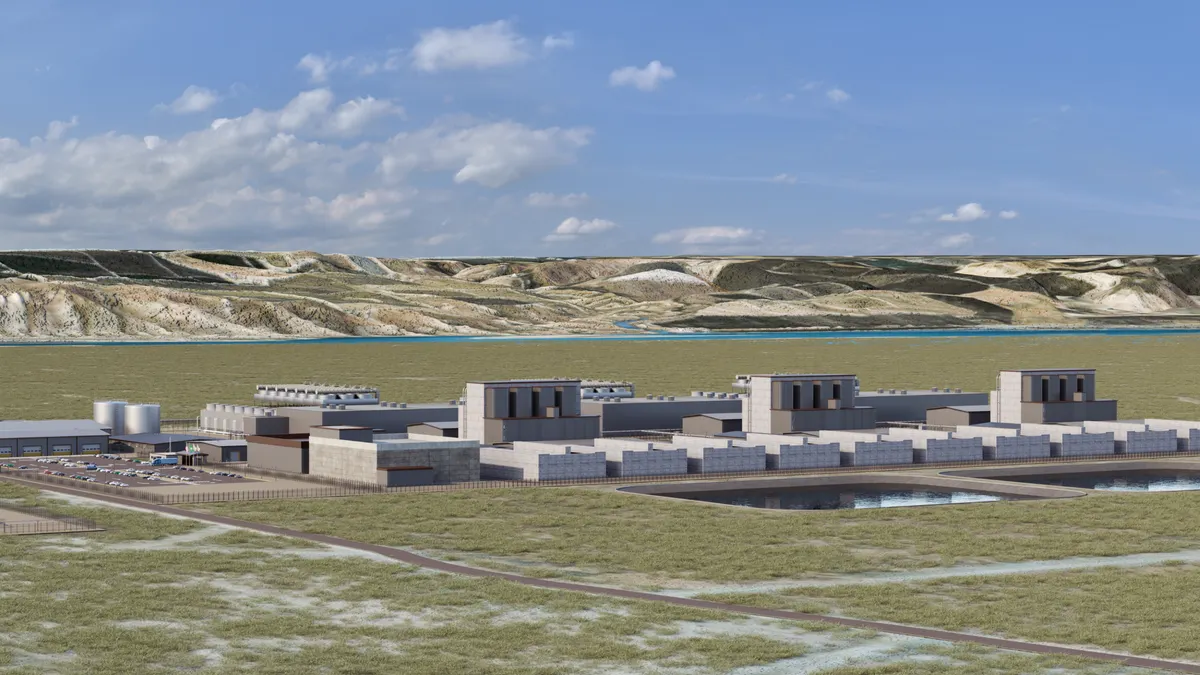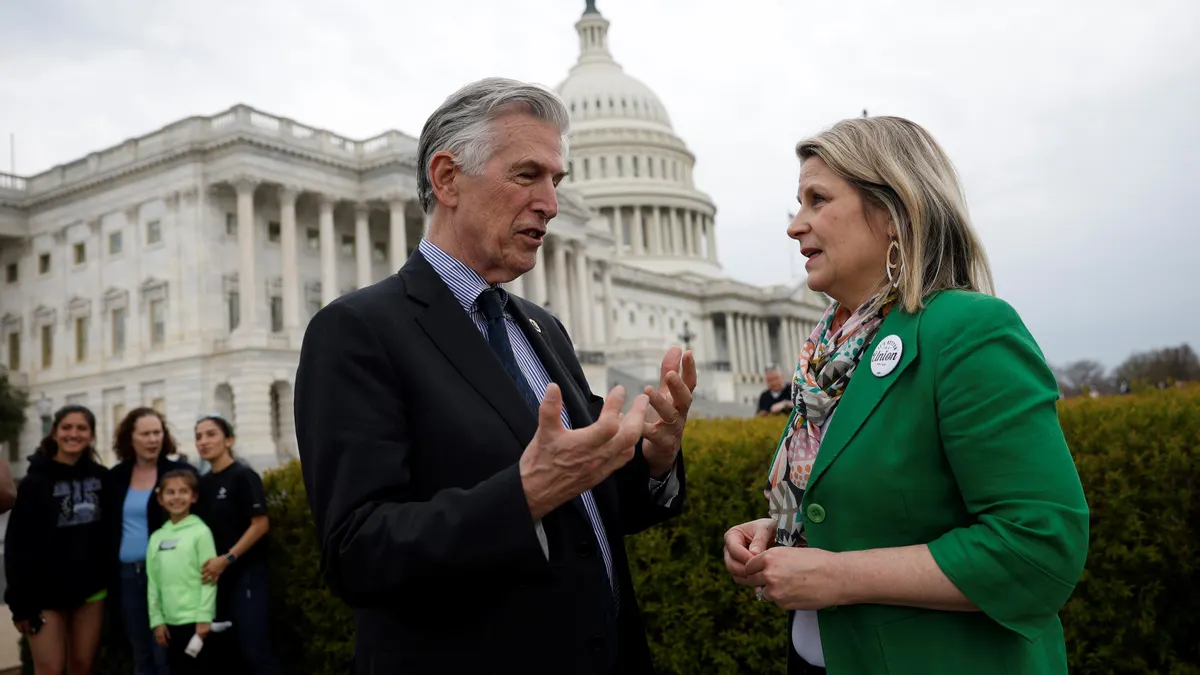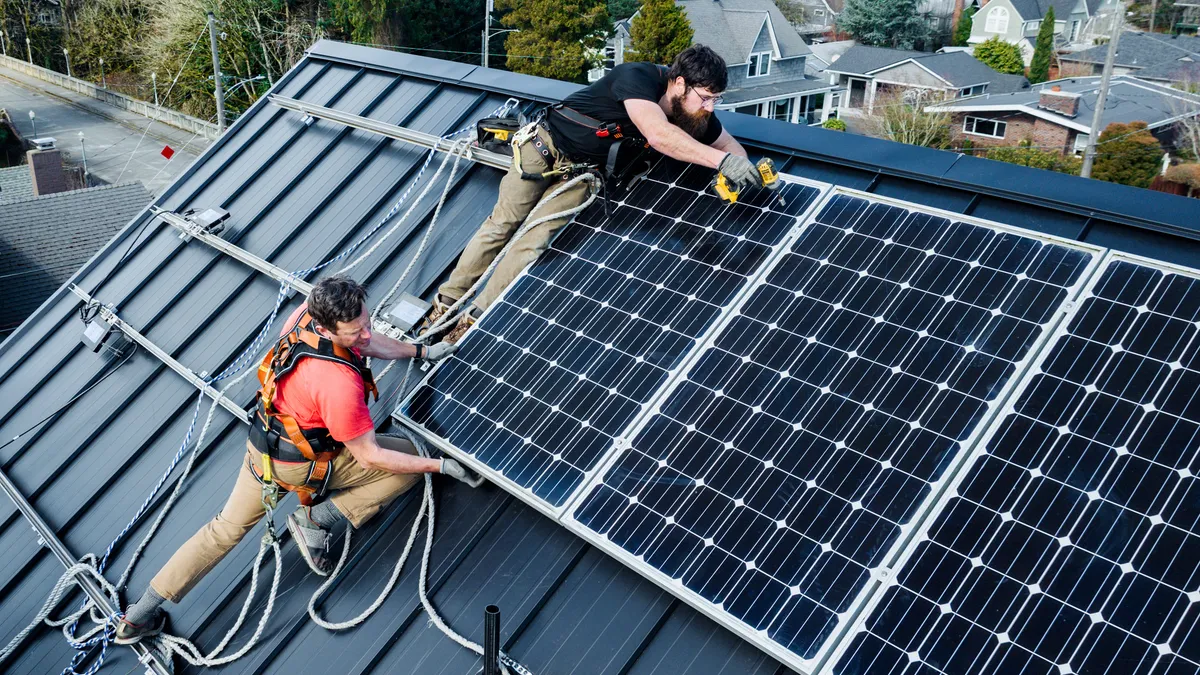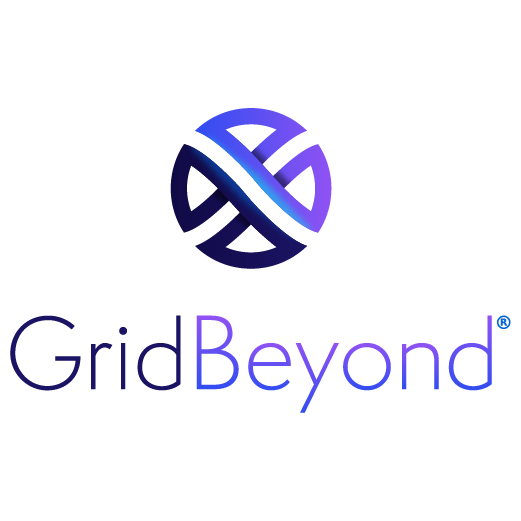In an increasingly changing energy world, state energy markets vary widely in how they allow companies to compete for and retain customers. And that's beginning to matter more in states with large retail customers in a (mostly) regulated vertical energy market, such as in Virginia.
Dominion Energy, the state's dominant utility, in May filed an application with the State Corporation Commission (SCC) for approval of its 100% renewable energy tariff. If approved, that tariff offering would prevent other retail electricity providers from competing in the market to give large and residential customers a 100% renewable option.
Virginia customers are only able to procure energy outside Dominion through two routes: If a customer has a load larger than 5 MW, it can apply to exit through the SCC. Or, customers of any size can shop for a 100% energy product from competitive services providers (CSPs).
Two CSPs — Direct Energy and Calpine Energy — have been soliciting business customers in the state to offer a 100% renewable energy package. On July 15, Dominion terminated processing all current and future interconnection applications with those CSPs, citing concerns over their ability to provide that offering to customers.
Policy watchers say this fight between Dominion and the CSPs highlights a larger tension in the state — whether Virginia should move toward a competitive retail choice market, something customer advocates, environmentalists, corporate customers and others are advocating for.
Battling for customers
The state's other utility, Appalachian Power Company (APCo), had its tariff approved in January, meaning CSPs cannot offer their 100% renewables package through that power provider's load zone. And though Dominion filed with regulators in 2017 for approval of its 100% tariff, it says it has modeled its new application off APCo's.
"Our goal is to ensure that all customers in Virginia are protected. And so we want the competitive service providers to be held to the same standard that APCo and Dominion Energy are being held to," Dominion spokesperson Audrey Cannon told Utility Dive. "We want them to have to be able to show the SCC that they have that generation in the same way that we're showing it."
Direct Energy serves almost a quarter million business customers across North America and says they "clearly have the expertise needed to provide renewable power to customers," Direct Energy Director of Government and Regulatory Affairs Ron Cerniglia told Utility Dive. "We look forward to establishing in the course of this proceeding that we are supplying customers with 100% renewable energy. And we've certainly adequately documented [Direct Energy's] ability to do so."
That process is "very prescriptive," according to Cerniglia. Direct Energy contracts with a renewable energy provider and delivers that power through Dominion's load zone, pending its approval.
The only exception, is if the utility offers a 100% renewable option in the form of a tariff, regulators ruled in 2017 after pressure from Direct Energy to clarify the rules.
In May of that year, Dominion proposed one of those tariffs, but regulators shot down the proposal a year later, ruling the process would have allowed "extraordinary discretion delegated to the utility."
But Dominion says this time around it expects to receive approval — because APCo pulled it off in January.
"We modeled that 100% renewable tariff really closely after the one that was recently approved by the Commission for APCo," said Cannon. "We intentionally followed their guidance. So that's why we feel good about, hopefully, the commission approving it."
The utility, under its proposed tariff, would use wind, solar and its four biomass units, including its 600 MW Virginia City Hybrid Energy Center, which generates the majority of its power from coal, and up to 117 MW from biomass. By 2023, 10% of the plant's power will come from biomass, which qualifies the plant as a renewable facility, said Cannon.
But the fight between the two providers and Dominion highlights a larger standoff in the state.
Battling for a competitive market
"There are sort of two fights," Harrison Godfrey, executive director of Advanced Energy Economy's Virginia chapter told Utility Dive. "One is this very technical fight" around qualifying the CSPs to deliver renewable energy into Dominion's load zone, he said.
"That's a concern in of itself — obstruction by bureaucracy and slow walking these processes. That coincides with a concern about whether or not you essentially get the introduction of a tariff … that closes down the 100% market for consumers large and small, but provides them with an option that is substandard or does not meet their specific requirements."
"Virginia is a little unique," said Godfrey. The state currently operates under a "hybrid" market, somewhere between regulated and deregulated, he told Utility Dive.
Virginia began the process of deregulation, along with a lot of the Northeast, in the late 1990s, before the "Re-regulation Act" was passed in 2007, creating the current structure, which incorporates most customers into the vertical utility model, with a few exceptions.
If a business customer's load is greater than 5 MW of electricity, it can apply to the SCC to leave Dominion's service. Regulators earlier this year denied the exit applications of two of the utility's larger customers, Walmart and Costco, citing concerns over impacts to other ratepayers.
That brings forward another concern outside customer access to clean energy: cost.
"Big retail customers like Walmart, Costco, all the tech companies that are creating a data center right now in northern Virginia, they're pretty much shackled to Dominion Energy."

Cassady Craighill
Communications director, Clean Virginia
"As an entrepreneur I just prefer a competitive marketplace," said Bob Pizzini, CEO of iFly, an indoor skydiving company in Virginia Beach, which has a demand capacity of approximately 1 MW. Pizzini is one potential customer of Direct Energy and says he has a problem with both the pricing structure and the accessibility of clean energy under Dominion.
Expense was a large driver for Walmart and Costco as well — Costco in its application complained Dominion's "excessive costs" compounded through "piling on" rate adjustment clauses were unfair. The utility in April filed for a return on equity of 10.75% and last week a coalition of customer groups, including the U.S. Navy, Walmart and low-income advocacy groups protested that proposed increase.
And in May, several technology customers, including Microsoft, Apple and Salesforce, wrote a letter to the utility, criticizing its integrated resource plan for not incorporating enough renewable energy and relying too heavily on natural gas. Earlier that month, a group of environmentalists and free market advocates formed a coalition, calling for the state to deregulate its energy market.
"Big retail customers like Walmart, Costco, all the tech companies that are creating a data center right now in northern Virginia, they're pretty much shackled to Dominion Energy," Cassady Craighill, communications director at Clean Virginia, one of the groups in the coalition, told Utility Dive.
"But what's important to remember that you shouldn't have to be a major corporate customer to use and even have the option to buy renewable energy. ... So in the case of Direct Energy, we're not necessarily saying that that's the choice for everybody, but the point is that there's no choice right now."
Written comments on the application are due by Nov. 14 and a public hearing to receive testimony on Dominion's Tariff is scheduled for Nov. 21.






